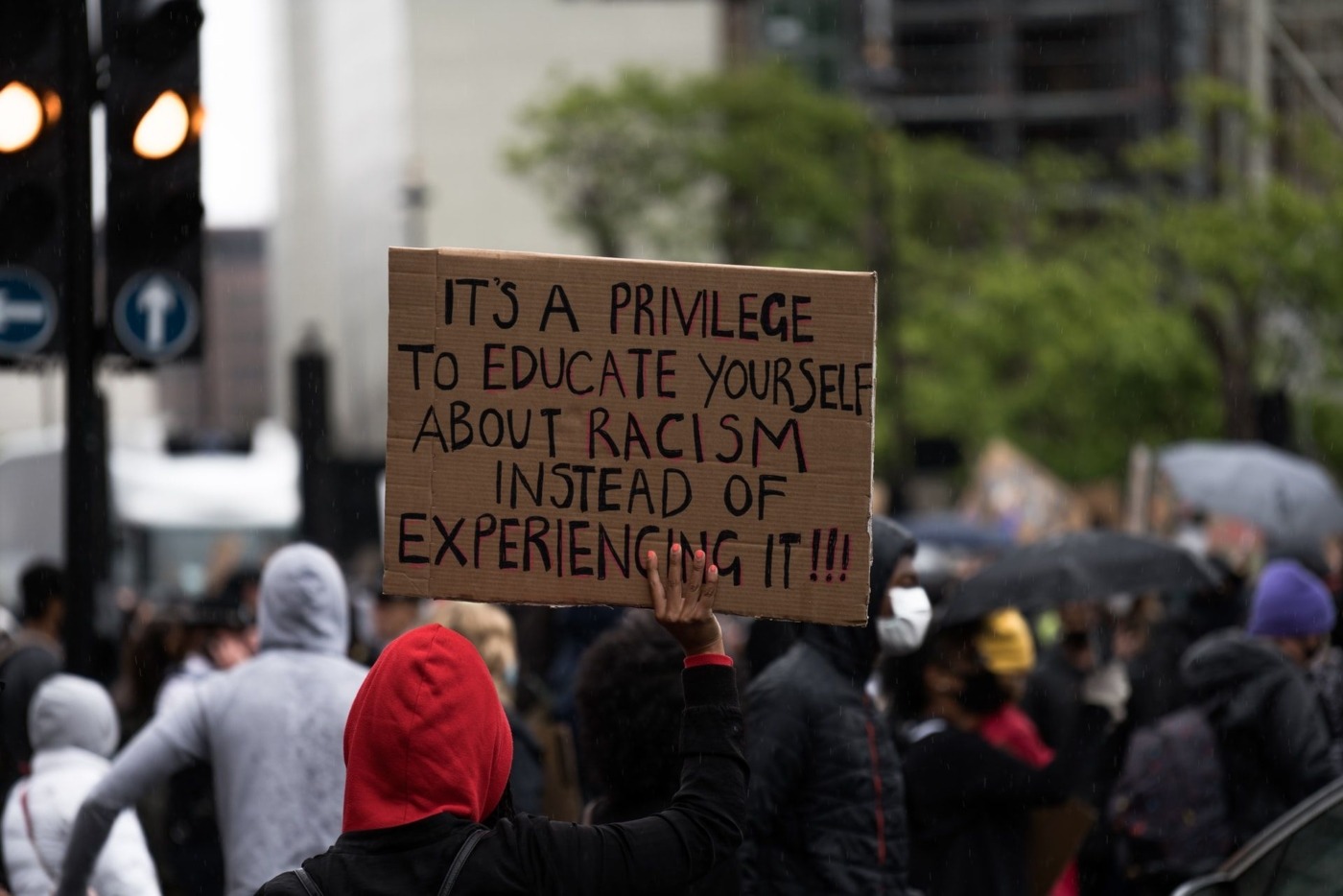We are what we read: diversifying and decolonising our reading lists
‘You are what you eat’ is a saying that many of us are familiar with. The same can be said for what we decide to read. Whether it’s ‘an apple a day to keep the doctor away’ – or ‘an Angela Davis a day to keep internalised racism away’ – it’s fair to say that whatever we consume, including our literature, is reflected in our actions in the world and our interactions with others.
Recently many Black Lives Matter protests were triggered by the murder of George Floyd. The issues of police brutality in America has also brought attention to cases like Breonna Taylor, Elijah McClain and Tony McDade. In light of these events in America, the rest of the world has come together to make changes to how we engage with blackness. The numerous protests have not only made us all aware (if we weren’t already) of the issues faced by the black community all over the world, but have pushed us to be more conscious in our lives to change these issues. For us book lovers, the right place to start is of course with what we read.
“Do the reading” is a very easy phrase to pass out on Twitter, but what does that mean? What reading should we be doing? Who should we be reading? These are questions I struggled to answer when I first started to expand my bookshelf. Funnily enough, I decided to start with books given to me over the years by my family.
One that I chose was Why I’m No Longer Talking To White People About Race by Reni Eddo-Lodge. The book has been described as a handbook to understand race relations in the UK today. Lodge’s book, in her own words, outlines a dichotomy: “The options are: speak your truth and face the reprisals, or bite your tongue and get ahead in life. It must be a strange life.”
Place yourself and question how you fit into what you read, but avoid centring yourself. Actively read books by black authors about black characters
While many of us are starting to become more familiar with situations around the world, I think it’s always important to read works introspectively too. Place yourself and question how you fit into what you read, but avoid centring yourself. Actively read books by black authors about black characters: doing this gives space to black authors to create more. We already know about the pitfalls of publishing, so see this as an opportunity to do your part to change this environment.
Another issue that crops up when diversifying what we as individuals read is the question: is this performative? Binging through Penguin’s compiled list of black authors isn’t the goal. Telling everyone you’ve read every page of Americanuh by Chimamanda Ngozi Adichie is not the goal either.
Now, there’s a touchy defensiveness that arises when this is pointed out for some people. Dismissive Karens on the internet, outspokenly claiming that they “aren’t racist” and posting black screens of solidarity all have their issues. The point is, work is required for your activism to mean anything. Simply decolonising by adding black authors (though here’s some that are amazing) to your library or Audible queue isn’t actually doing much. However, reading and discussing Queenie or Such a Fun Age is a great start.
A lot of non-black people are starting to have conversations around their contributions to issues of race and how they fit into these dialogues. Many people are reaching out to common sources, like The Help. While I and many others have criticisms of this book, it is a start to understanding aspects of race relations.
The theory is necessary to make sense of the experience. So try to add scholars to your bookshelf too
However, fiction can only denote experience, so it needs to be accompanied by non-fiction and theory. Most people will have heard names such as Bell Hooks and Angela Davis being thrown around while there are talks of defunding police and abolition of prisons. These authors are critical in aiding our understanding of the systemic issues faced by black people and specifically black women. In reading theory, the experience can be contextualised.
Think of it this way: academia and literature have gone hand in hand since the first bound book. People and thought work the same. The theory is necessary to make sense of the experience. So try to add scholars to your bookshelf too.
In our quest to gain knowledge we must also remember this learning is not new. None of the deeply investigated and thorough academia has magically appeared out of thin air along with people realising they contribute to racist systems and structures. Similarly to our lives, our activism needs to be respectful and intersectional too. Interlink these discussions at their intersections, because these academics are too! Our very own Warwick Anti Racism and Sexism societies often team up to produce informative and accessible learning tools, like the WASS race theory reading lists.
Diversifying and decolonizing what we read is a small step, but the benefits are astronomical. Literature has proven to be a vital source of knowledge in our society, not only to understand the past, but to look to the future and change it for the better. Refinery 29 already has a comprehensive list to start learning. It’s time we take that opportunity into our own hands, so put the act in activism and pick up some new books.

Comments